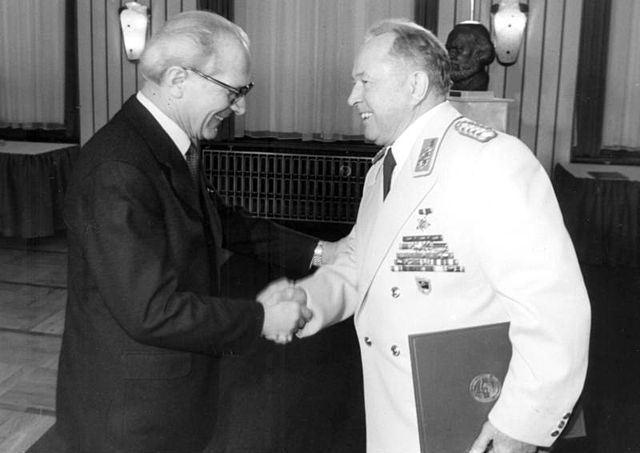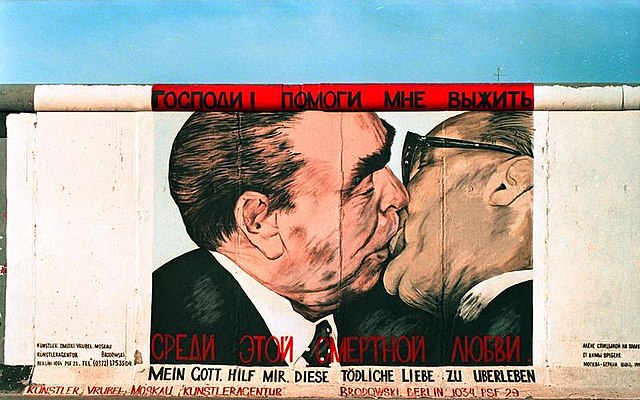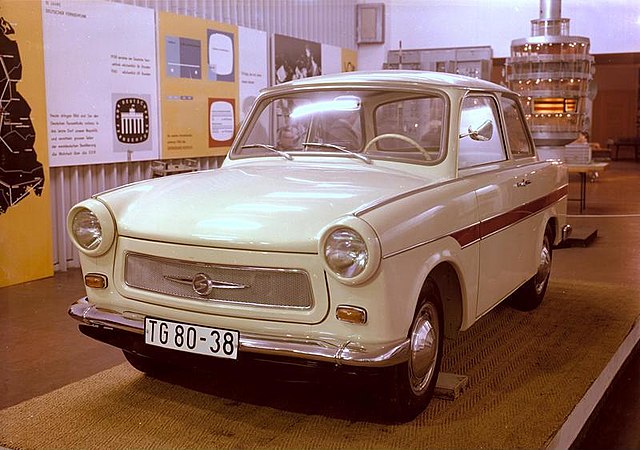East German jokes, jibes popular in the former German Democratic Republic, reflected the concerns of East German citizens and residents between 1949 and 1990. Jokes frequently targeted political figures, such as Socialist Party General Secretary Erich Honecker or State Security Minister Erich Mielke, who headed the Stasi secret police. Elements of daily life, such as economic scarcity, relations between the GDR and the Soviet Union, or Cold War rival, the United States, were also common. There were also ethnic jokes, highlighting differences of language or culture between Saxony and Central Germany.
Erich Honecker presents an award to Stasi chief Erich Mielke (1980).
Soviet leader Leonid Brezhnev locked in a socialist fraternal kiss with Honecker
Showcased Trabant 601 (1963)
Russian political jokes are a part of Russian humour and can be grouped into the major time periods: Imperial Russia, Soviet Union and post-Soviet Russia. In the Soviet period political jokes were a form of social protest, mocking and criticising leaders, the system and its ideology, myths and rites.
Quite a few political themes can be found among other standard categories of Russian joke, most notably Rabinovich jokes and Radio Yerevan.
A group of khodoki (petitioners) come to make a request of Lenin; such meetings were often depicted in propaganda stories about Lenin, and in jokes making fun of such stories.
Joseph Stalin
"Khrushchev demands: overthrow Adenauer; now more than ever CDU"
Leonid Brezhnev







